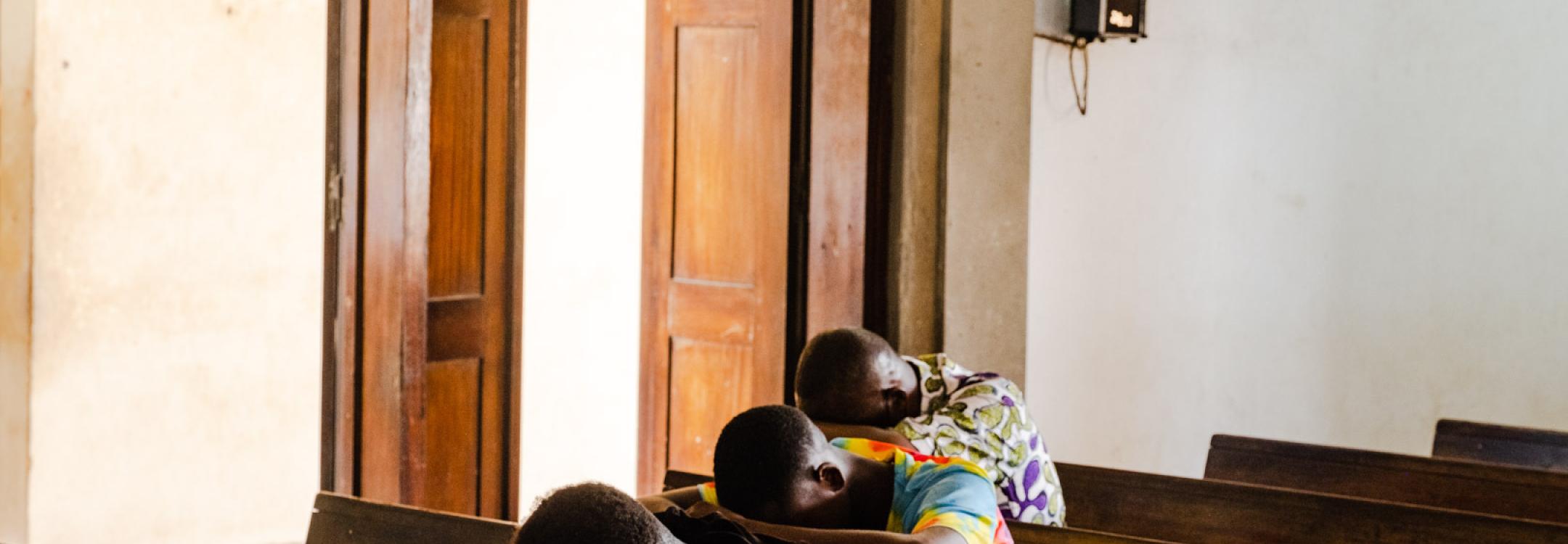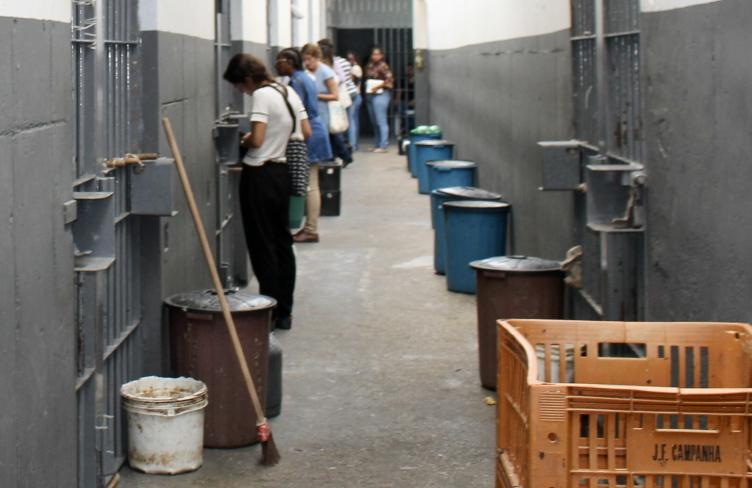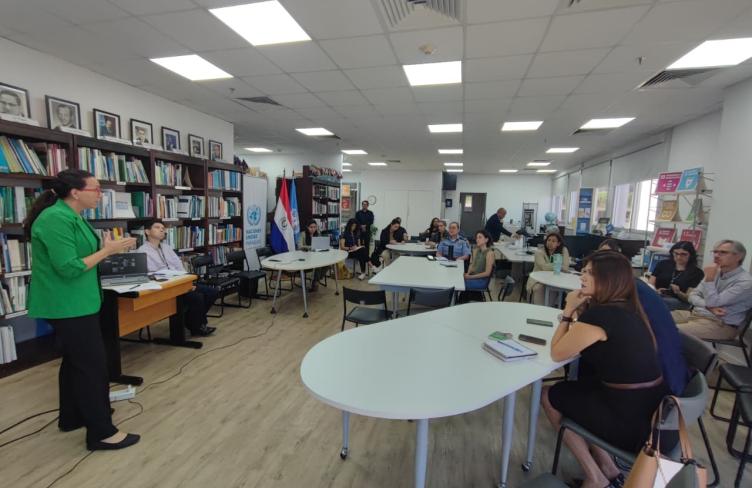
Around the world, many detainees are punished before they ever face trial. In Africa, between 30 and 60 percent of all detainees are awaiting trial (depending on the subregion). Entitled to be considered innocent and detained only in exceptional circumstances, many are instead held in pretrial detention for months and even years. There, they are often exposed to overcrowding and, disease, victimized by violence, pressured for bribes, and exposed to situations that could amount to torture or ill-treatment. Lost livelihoods and lost contact with families also place a toll on whole societies. Overuse of pretrial detention thus harms individuals, families, and whole communities; wastes state resources and human potential; and undermines the rule of law.
Following the adoption in 2015 by the African Commission on Human and People’s Rights of the Luanda Guidelines on Conditions of Police Custody and Pretrial Detention in Africa, also known as the Luanda Guidelines, we proposed with African Police Oversight Forum (APCOF) and the African Network of National Human Rights Institutions (NANHRI) that the 25th April, day of the adoption of the Luanda Guidelines, should be commemorated and celebrated as the Africa Pre-trial Detention Day.
This day has since become an opportunity to advocate for systemic changes aimed at reducing overuse of pretrial detention, with NHRIs and NPMs across the region as the driving force.
The APT has built on these efforts over the past year, including through regional and bilateral consultations with 10 NPMs from the region, including Burkina Faso, Cameroon, Cape Verde, Mali, Mauritania, Mauritius, Morocco, Rwanda, Togo and Tunisia.
These consultations confirmed that while, in most of their countries, the law is clear that pre-trial detention should only be used as an exceptional measure, the reality is very different. Pre-trial detention is used systematically in practice. In many states in the region, more than half of all detainees are still awaiting trial.
We have also seen that one off measures, including: pardons and COVID-19 related detainee release schemes, have not had a long-term impact on reducing overcrowding as they do not address the root causes driving new arrivals in detention.
Through consultations with APT over the past year, and building on the comprehensive standards set out in the Luanda Guidelines, NPMs have identified a range of strategies they can pursue to facilitate more releases and reduce the number of arrivals in detention. These, alongside our pre-trial detention factsheet published together with Penal Reform International, are hopefully a resource that other NPMs and oversight bodies can use for inspiration on this day and the year ahead.
On society and culture
- Together with media and civil society, promote public awareness of the problem, including by collecting and publishing statistics and materials, including on the way pretrial detention harms society as a whole.
- Together with civil society, media and the community, raise awareness of problems relating to “popular justice” and the fear of reprisals among judges if they release individuals from pre-trial detention or do not detain them awaiting trial. Increase efforts to improve public awareness on rights and procedures in detention, including in a range of languages and creative formats that everyone can understand.
On law
- Advocate for ratification and domestication of international laws, including in relation to fair trials and access to justice.
- Advocate for law reform so that pretrial detention is only to be used in exceptional cases, including a clear definition of what constitutes exceptional (including never for petty offences).
On policies and practices
- Mobilise leaders in law enforcement to help change law enforcement cultures that view pre-trial detention as a legitimate punishment.
- Advocate for the expansion of legal aid, in order to assist the many detainees who have no knowledge of the law and how to navigate the system in which they find themselves.
- Make recommendations aimed at strengthening the independence of the judiciary, including through the allocation of more resources and more open appointments processes.
- Advocate for the use of alternatives to detention in a greater range of cases, taking into account vulnerabilities and profiles at risk.
- Advocate for the end of money bail, which leads to economically disadvantaged people being more likely to be detained before trial.
- Develop strategies for change together with a wide range of stakeholders, including with judges and prosecutors who may be unaware of the impact of their decisions.
- Advocate for improving coordination among actors in the criminal justice system.
- Conduct training for the justice sector on the use and application of alternative measures
- Raise awareness within the criminal justice system on alternatives to confession-based evidence, including through implementation of the Méndez Principles.
- Conduct training and develop curricula for police, judges and prosecutors on investigation skills, standards and guidelines.
- Conduct training for paralegals and advocate for them to have access to detainees.
- Cooperate with and strengthen, where appropriate, traditional justice systems (especially in remote areas).
- Advocate for the use of “camp courts”, as well as circuit and mobile courts to process backlogs of cases.
- Create or strengthen a “court-users taskforce” to keep track of cases and provide information to court users who are unfamiliar with processes and procedures.
- Create a register of interpreters who have worked within the criminal justice system and provide training for them on relevant human rights issues.
- Encourage the police and the prosecution to make sure that relevant evidence and witnesses are presented before court when they are required, to avoid delays.
On monitoring
- Conduct regular and unannounced monitoring of police custody, prisons and of trials, with the aim of identifying problems and making constructive recommendations for change at every stage of the process.
- Monitor trials and work with media and civil society to improve the monitoring and accountability of judges.
- Ensure that detention registers are in use and up to date, including to eliminate “lost” cases.
- Advocate for members of the judiciary to visit detention places, including as part of their training.
- Engage with UN mechanisms (including the CAT, SPT, UPR and special procedures) to ensure they include this issue in their country reports and recommendations.
Today, we encourage NPMs and independent oversight institutions to get inspiration from these strategies and share their experience and progress with their peers across the continent, to continue learning from each others’ progress and challenges in contributing to reduce pre-trial detention.



